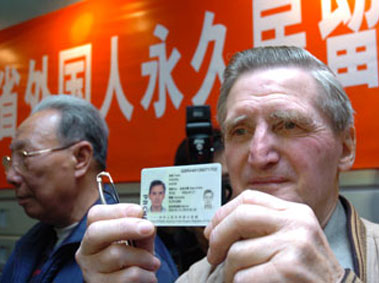As a Chinese family lawyer engaged in cross-border family matters, it is indispensible for us to discuss legal matters with our foreign counterparts using legal concepts that are suposed to refer to the same thing.
For example, one of the most evasive legal terms in family and estate laws is “custody“.
On the website of Legal Information Institute, the term custody is defined as follows:
Custody is the state of physically holding or controlling a person or piece of property , or of having the right to do so. A person who has custody over property or another person often has affirmative duties to protect and care for those in their charge.
…….
In family law, the question of custody generally arises after the separation or divorce of a minor child’s parents, though non-parent parties might also seek custody. Custody arrangements determine both physical and legal custody of the child. Physical custody determines who lives with and cares for the child. Joint physical custody arrangements allow for a child to spend equal time with both parents. In primary or sole physical custody arrangements, the child spends a majority of the time living with one parent–called the custodial parent–with noncustodial parents often having visitation rights. Legal custody is the right to make important decisions regarding the child’s health, welfare, and upbringing. Like physical custody, arrangements can provide for sole or joint custody. A parent with sole legal custody need not consult the other parent when making decisions, whereas parents with joint legal custody must consult each other regardless of whom the child lives with.
The paragraphs quoted above are apparently from US jurisdiction. It can be inferred that “custody” as used in US is generally referring to the relationship between parents (or others granted with similar duties) and children.
Very often we encounter another term “guardianship” which denotes a similar relationship between two natural persons. Here is the definition from LII:
Guardianship refers to the legal role given to an individual to manage the personal activities ( guardian of the person ) or resources of another person ( guardian of the estate ) who cannot properly do so on their own. Guardianship often is used to give responsibilities of managing a child’s welfare to an individual besides their parents in situations where a proper parent is not available. Some adults may end up under a guardianship (also called conservatorship for adults) when a court determines they have a disability that prevents them from exercising judgment or if the person becomes overly reckless or harmful to their welfare. For more information on conservatorship.
Given that guardianship transfers legal responsibilities from one person to another, state laws regulate when and how they are used and vary greatly. Generally, the guardian owes a duty to act in the best interests of their ward , and a court can remove a guardian for acting negligently or in their own self interest. Specific laws govern guardianship in the contexts of children, determining when a court can and to what extent transfer the authority of a parent to another person.
So guardianship seems to refer to the relationship between a non-parent individual and the ward, the person who is under the care and control of the first mentioned individual.
However, the distinction between custody and guardianship may not be as clear across different common-law jurisdictions where each jurisdiction may vary in terms of the duties and responsibilities of a custodian or guardian towards the person placed in their custody or gardianship.
On the other hand, in Chinese legal terminology, both custody and guardianship are called with same term “jianhu” or “监护” in Chinese characters whereby the custodians or guardians shall act in the best interests of the wards in their care.






Comments